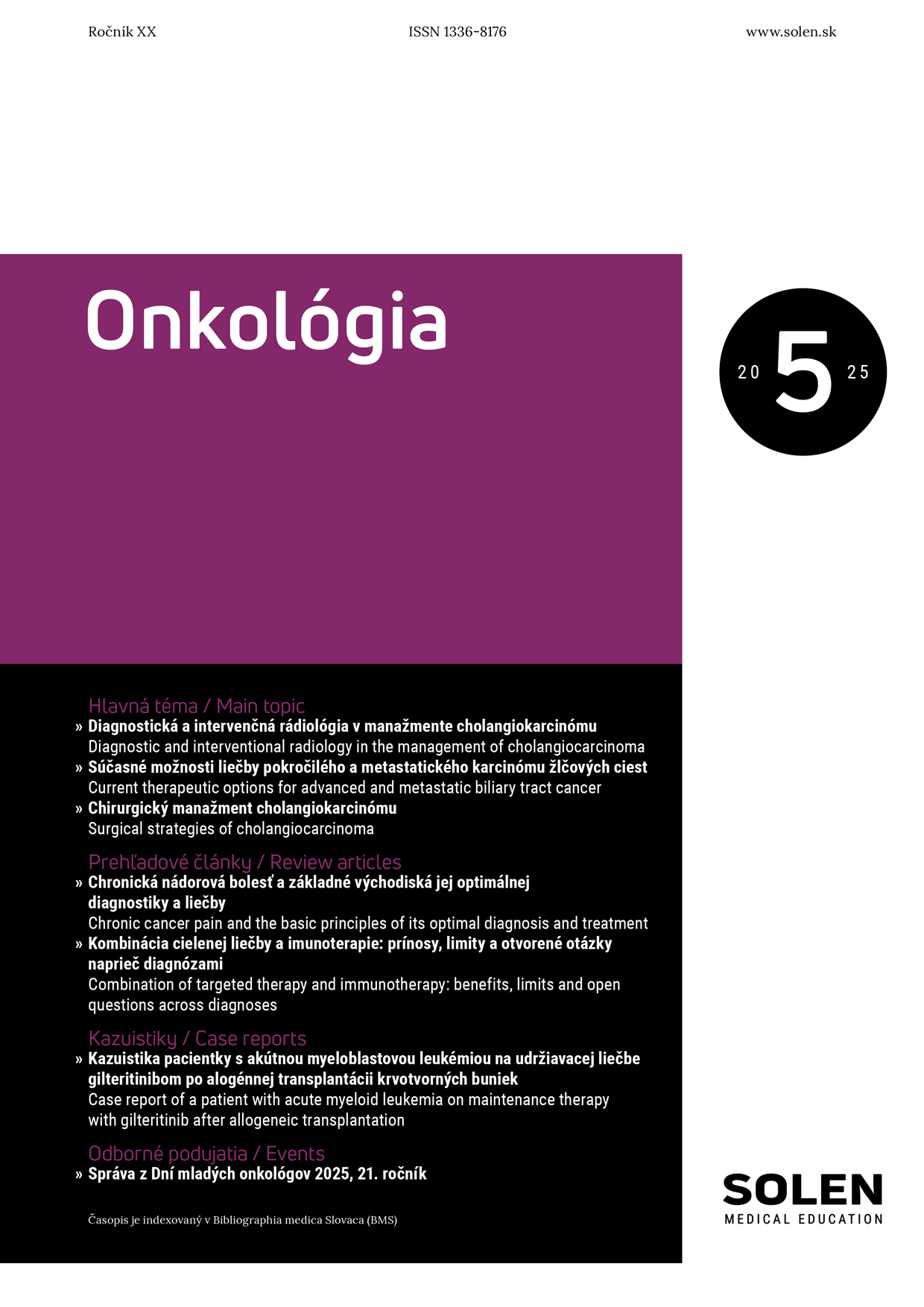Onkológia S2/2020
Clinical experience with successful ruxolitinib treatment in a patient diagnosed with polycythemia vera
Introduction: Polycythemia vera (PV) is Philadelphia chromosome-negative chronic myeloproliferative neoplasma (Ph- MPN), hallmark of which is the clonal proliferation of hemopoetic stem cell in bone marrow with expanded red cell mass and dominant erythrocytosis in peripheral blood and/or spleen. PV is characterized by thromboembolic events, progression to myelofibrosis (MF), and transformation to acute leukemia (AL) with reduced survival rate due to these complications. The primary goals of treatment for MPNs are to reduce the risk of thrombosis, alleviate systemic symptom burden (fatigue, pruritus, microvascular symptoms, splenomegaly) and prevent transformation to MF/AL. Case report: In our case report we present high-risk young patient with polycythemia vera, who had no response after interferon-alfa cytoreduction and he has reached response until JAK1/2 inhibitor ruxolitinib treatment. In this interesting case, we also attempted to avoid a predicted mutagenic effect of ruxolitinib on spermatogenesis. Conclusion: Currently available drugs for PV have not been shown to prolong survival or alter the natural history of the disease. Currently, we continue with conservative management in low-risk PV (phlebotomy, aspirin) and with cytoreductive therapy in high-risk patients with first, second and third line drugs (hydroxyurea, interferon-alfa, pegylated interferon-alfa and JAK1/2 inhibitor therapy).
Keywords: polycythemia vera, thromboembolic events, hydroxyurea/hydroxycarbamide, interferon-alfa, JAK1/2 inhibitor

















